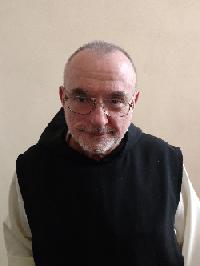Memorial of Saints Philip and James, Apostles
Scripture Readings: l Cor 15: 1-8; Jn 14: 6-14.
 Show us the Father, and that will be enough for us. What we desire and hope for reveals our inner self, who we really are. Our ambitions and goals create a distance between where we are and where we want to be. They are the source of our dissatisfaction with life and reality as it appears. We suffer because we do not yet attain what would satisfy us, what would be enough for us. What we hope for is what we are willing to suffer for.
Show us the Father, and that will be enough for us. What we desire and hope for reveals our inner self, who we really are. Our ambitions and goals create a distance between where we are and where we want to be. They are the source of our dissatisfaction with life and reality as it appears. We suffer because we do not yet attain what would satisfy us, what would be enough for us. What we hope for is what we are willing to suffer for.
After the intimate teaching of Jesus about his oneness with the Father, Philip’s spontaneous request seems appropriate. Show us the Father. Make manifest to us this unity in an overwhelming theophany which will answer all our hesitations, fears, and doubts. We would then be satisfied. That would be enough. That would be a transcendent verification, a liberation from the limitations and muddle of profane human life. This would fulfill our desires instead of constantly having them postponed until another then or for another there.
Perhaps the problem with Philip’s request is that it wishes to locate God as an object apart from the presence He already has taken through the incarnation in our world. Philip is wrongly imagining how God is present to us, assuming that we can know God as we know other forms of reality. It is an unreal image of God which can only  sustain an unreal image of our self. Just as an unreal image of ourselves creates an unreal image of God. Jesus gently brings Philip back to reality. Have I been with you for so long a time and you still do not know me?
sustain an unreal image of our self. Just as an unreal image of ourselves creates an unreal image of God. Jesus gently brings Philip back to reality. Have I been with you for so long a time and you still do not know me?
The immediacy of our life in this world is a life which mediates and communicates the very life of God to us. Our personal life is a history of discipleship, of learning to read the text of human life through the gift of belief, the gift of the Spirit. Philip can be excused for his request that God make himself evident for the sake of satisfying his religious need since the disciples had not yet received the Spirit. But the way we understand, read, and imagine who God is present in the world is now taught us by the Holy Spirit. We are taught by God through the Spirit handed over to us. After Jesus had tasted the vinegar, he said, It is accomplished, and bowing his head he gave up his spirit (Jn 19: 30). H handed it over. This is the tradition of a living Spirit that is handed on to us from the apostles. The Tradition that comes from the apostles makes progress in the Church with the help of the Holy Spirit. There is a growth in insight into the realities and words that are passed on…. It comes through the contemplation and study of believers who ponder these things in their hearts. It comes from the intimate sense of spiritual realities which they experience (Dogmatic Constitution on Divine Revelation). The incarnation of the Word is continuing in our lives.
